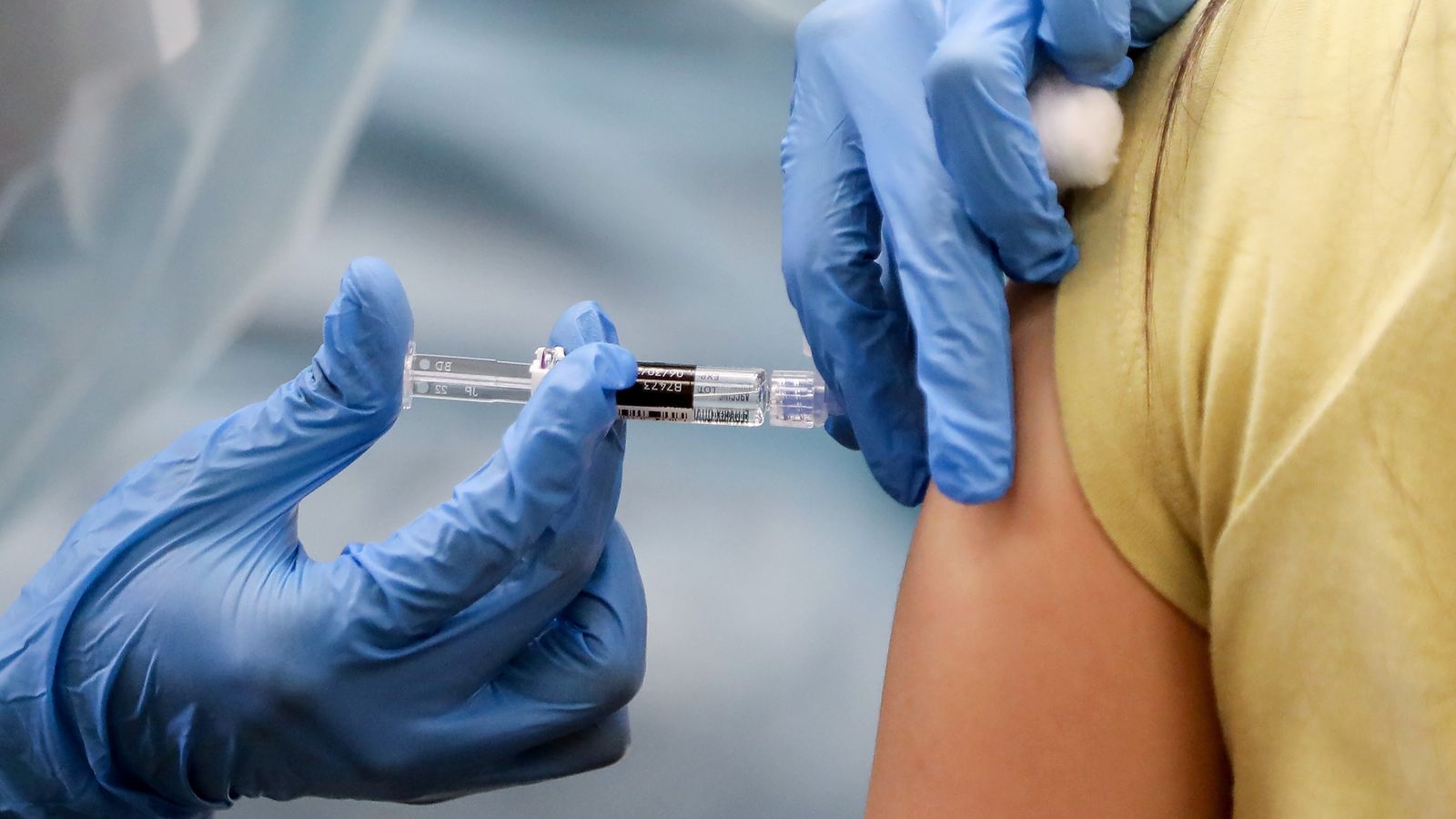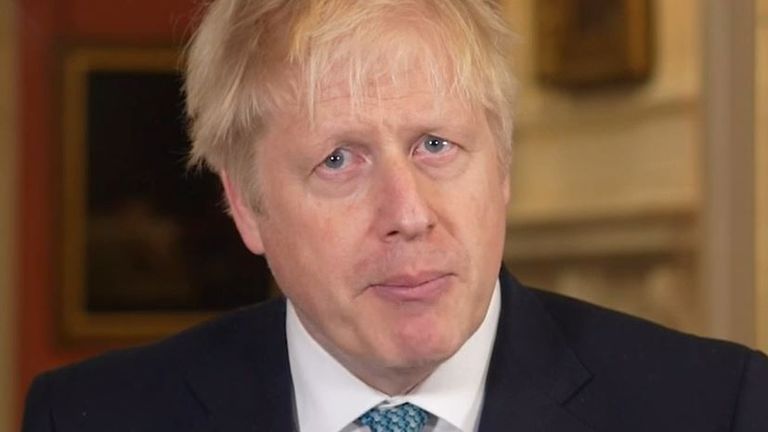The race for a COVID-19 vaccine is edging towards the finishing line, but we still don’t know how far off a winner is.
Kate Bingham, the head of the UK Vaccines Taskforce told MPs on the Science and Technology Committee that – if she put on her rose-tinted specs – she can see the first results on whether the Oxford or Pfizer prototypes work being ready in early December.
And if that’s the case, deployment could start “by the year-end”.
The NHS has been told to get ready to give a vaccine. But that’s very different to having a vaccine to give.
The large-scale clinical trials currently under way will show how well the vaccines protect against coronavirus.
The better they are at preventing disease, the sooner there is a clear difference compared with volunteers who are just given a placebo vaccine, and the quicker we will get those results.
But it may be that a vaccine is only 50% effective, so the trials could take longer than originally hoped.
That doesn’t sound like great protection – it’s a lot lower than the effectiveness of vaccines against most other diseases used on the NHS.
But the lead scientist from the Oxford vaccine team told the committee that even a partially effective vaccine would be a game changer.
Professor Andrew Pollard said a vaccine that prevents disease in 50% of patients would halve hospital admissions and deaths, and put the UK in a much better position that it is in right now.
However, it would mean that we are living with the virus for some time to come, as it would still spread.
Even when we know how good the vaccine is, it will take several months to roll out in large numbers.
Kate Bingham said there would be enough of the Oxford/AstraZeneca vaccine for four million doses by the end of the year, but this was in a bulk form, none of it has been put into vials yet.
It’s far less than the 30 million doses that were originally hoped to be ready by September.
But there should at least be 10 million doses of the Pfizer/BioNTech vaccine ready in December.
Even if the vaccine gets the nod from regulatory authorities there is then the challenge of actually sticking needles in people’s arms.
The vaccines chief said there was a 50% chance of all 30 million vulnerable people in the UK being protected by early summer next year.
That’s a long way off, so her other news that AstraZeneca is about to start two clinical trials of monoclonal antibodies to prevent disease is significant.
Mr Trump had a shot of a different brand of antibodies as part of his treatment.
But scientists believe that a single dose could protect against COVID-19 for six months.
One trial will be in people at high risk of infection – health workers, people in prisons, and so on.
The other will be a “stormchaser” study, with a dose given to contacts of newly diagnosed cases in food packaging plants and other confined spaces.
We won’t get results until early next year, but already negotiations have started with the pharmaceutical company for large numbers of doses.
As we spiral into the gloom of a second lockdown, it’s good to see a chink of light at the end of the tunnel.

